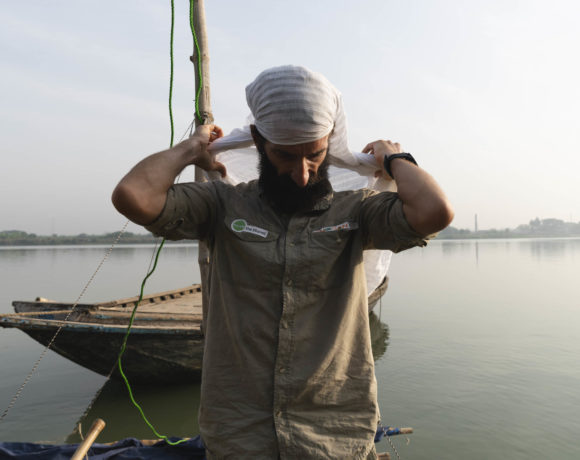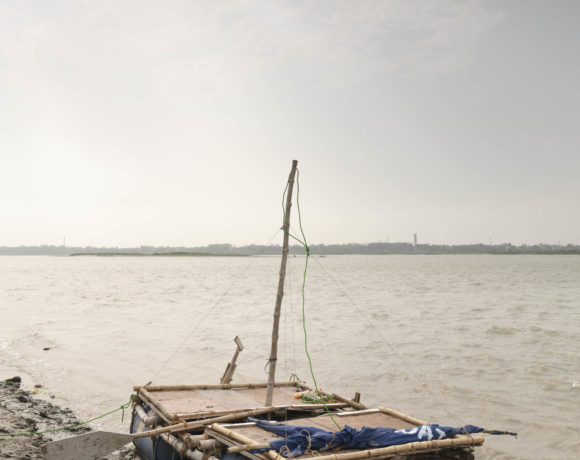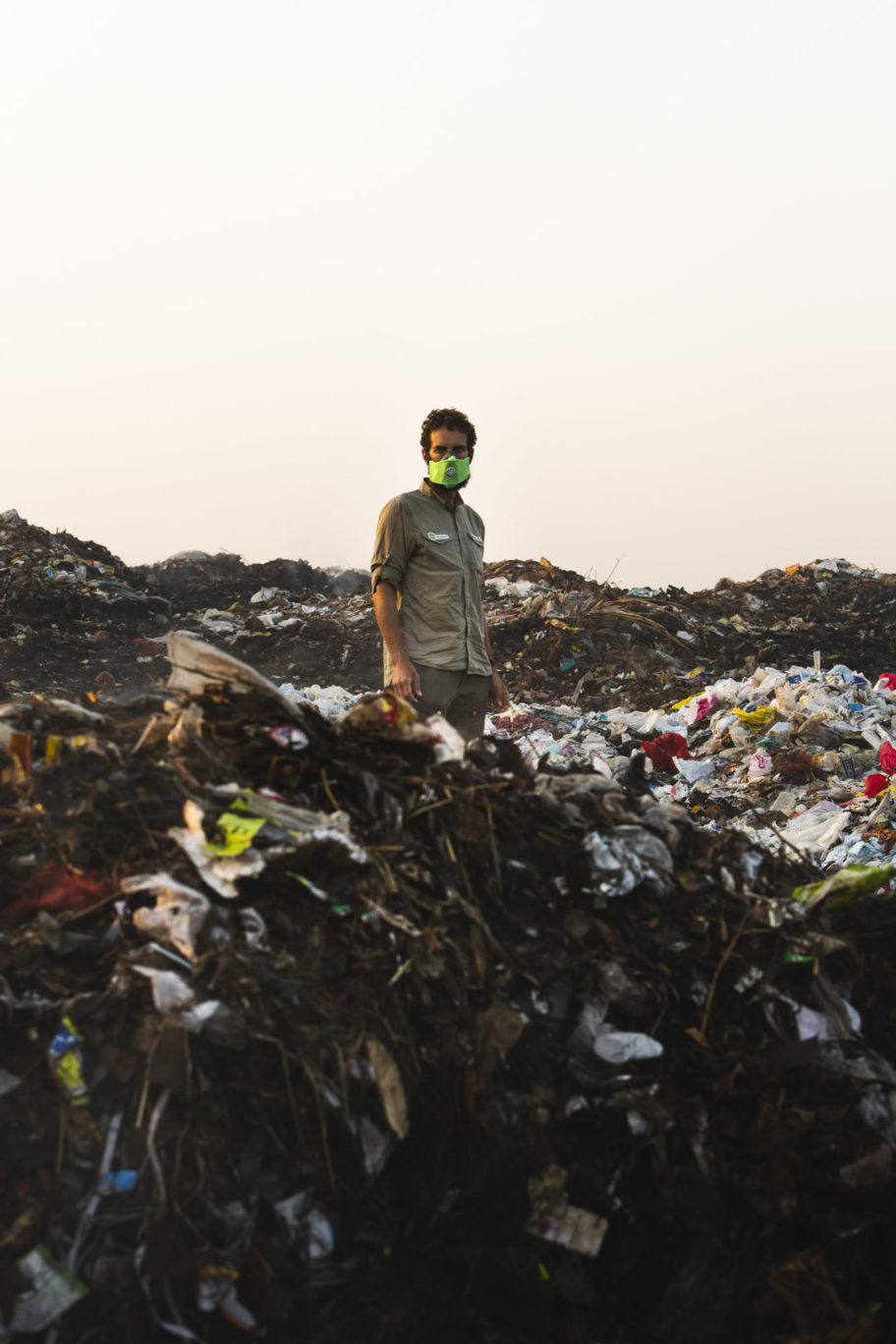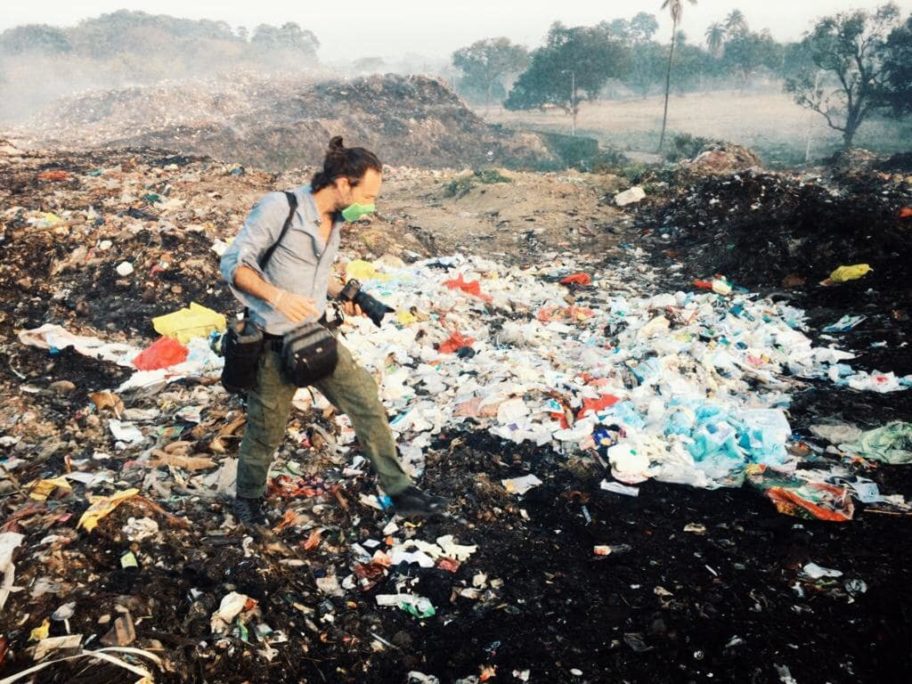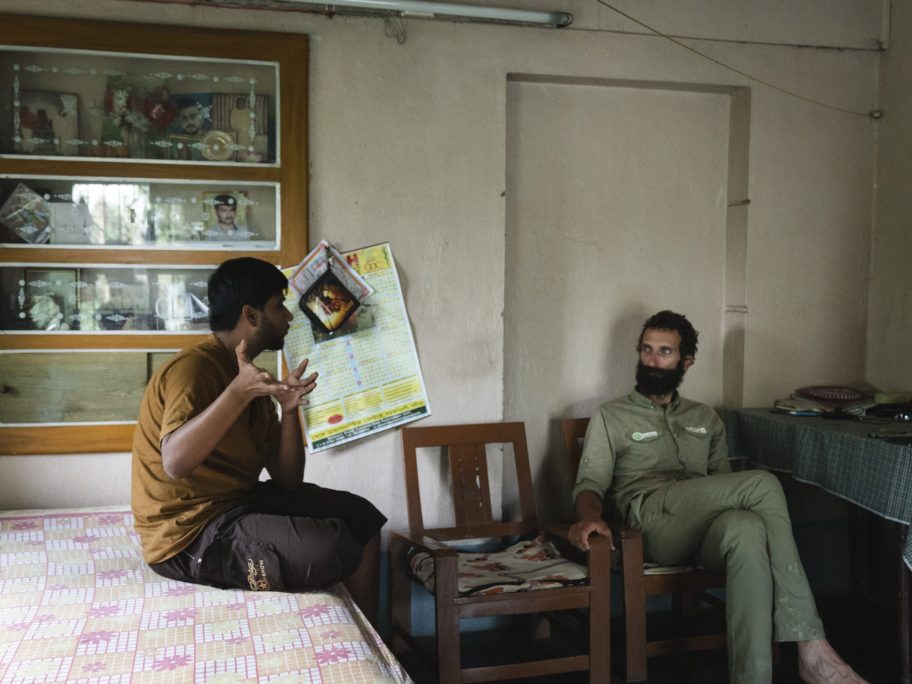When I reach the top, I am taller than all the buildings around me and I seem to dominate the village. The last time I had this feeling was when I climbed the volcano Etna and, just as then, smoke comes from this mountain. Here, however, the smoke does not rise, instead it descends heavily onto the plain, on all the trees and houses. The smell, even behind my protective mask, is so strong that I hold my breath as much as possible. I shout to Mauro to join me quickly because it is clear that we will not be able to stay here long. Between the two of us, he is the one who will end up suffering the most for this visit to a garbage dump alongside the Ganges because he is not wearing his protective mask correctly. He will feel nauseous and have a burning sensation in his throat all day. Perhaps it is a small price to pay for those who are curious to witness these things.
This is how our day begins, immersed up to our ankles in these human by-products. From the top of this smoky mountain – the last thing I see of this village before I get back on my raft – I wonder what the solution could be. What does the future hold?
I don’t have to wait long before hearing an interesting opinion. Due to a series of unforeseen and unfortunate events caused largely by a thunderstorm, I am forced to stop at a village 20km down the river. So we end up meeting Boory’s cousin, Kinshuk. He is a geography teacher and he loves to talk. He explains that in this area the government has implemented environmental protection policies – starting with the electric crematorium ovens that will almost completely replace the burning ghats. It is not only a problem of environmental pollution (fumes and ashes), he says, but also visual pollution. In fact, many people are disturbed by the image of the bodies that are cremated and thrown into the water, half-incinerated. Special places are also being built in which the faithful can immerse the offerings and votive idols. Here, volunteers a little further down the river, collect and recycle the objects. So nothing floats adrift on the Ganges.
But what about pollution of other kinds? Kinshuk’s answer, crazy but enlightened, surprises me.
‘Since political leaders have shown they cannot solve the problem, it is up to spiritual leaders to act. What if one of them wakes up tomorrow and says publicly; “i had a dream last night. Shiva came to me and told me that if we don’t clean the Ganges and treating her as a holy place, just like we do with temples, we can never aspire to enter paradise”. Instantly, one billion people would change their attitude. With a single statement, we solve the problem of pollution for this water course once and for all.’
I don’t know if this could be a solution, but I do see that religion is a strong lever and one of the strongest links that binds this culture together.
